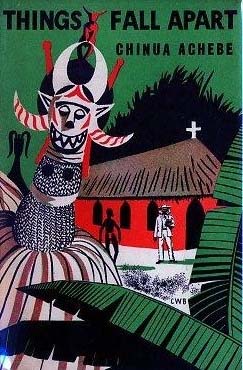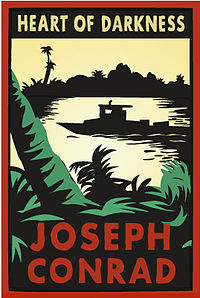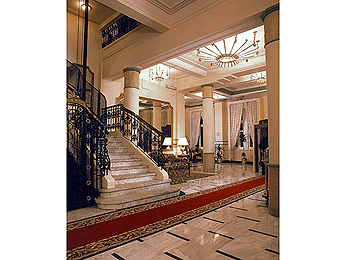by Adrian D’Ambra
Paul Beatty – ‘“A little black boy is in the kitchen watching his mother fry up some chicken. Seeing the flour, he dabs some on his face. ‘Look at me, Ma,’ he says, ‘I’m white!’ ‘What’d you say? says his mama, and the boy says, ‘Look at me. I’m white!’ WHAP! His mama slaps the shit out of him. ‘Don’t you ever say that!’ she says, then tells him to go tell his father what he said to her. Crying hard as Niagara Falls, the boy goes to his father. ‘What’s wrong, son?’ ‘M-M-Mommy sl-sl-slapped me!’ ‘Why she do that, son?’ his father asks. ‘B-b-because I-I said I was w-w-white.’ ‘What?’ BLAAAAM! His father slaps him even harder than his mama did. ‘Now go tell your grandmother what you said! She’ll teach you!’ So the boy’s crying and shaking and all confused. He approaches his grandmother. ‘Why, baby, what’s wrong?’ she asks. And the boy says, ‘Th-th-they sl-slapped me.’ ‘Why, baby – why they’d do that?’ He tells her his story and when he gets to the end, PIE-YOW! His grandmother slaps him so hard she almost knocks him down. ‘Don’t you ever say that,’ she says. ‘Now what did you learn?’ The boy starts rubbing his cheek and says, ‘I learned that I’ve been white for only ten minutes and I hate you niggers already!’”
‘The Kids couldn’t tell whether he was joking or just ranting, but they laughed anyway, each finding something funny in his expressions, his inflections, the cognitive dissonance in hearing the word “nigger” coming from the mouth of a man as old as the slur itself. Most of them had never seen his work. They just knew he was a star. That’s the beauty of minstrelsy – its timelessness. The soothing foreverness in the languid bojangle of his limbs, the rhythm of his juba, the sublime profundity of his jive as he ushered the kids into the farm, retelling his joke in Spanish to an uncaptive audience running past him, cups and thermoses in hand, scattering the damn chickens.’ – The Sellout, Oneworld Publications, London, 2016, pp. 188-189
***
cognitive dissonance – In psychology, cognitive dissonance is the mental stress or discomfort experienced by an individual who holds two or more contradictory beliefs, ideas, or values at the same time; performs an action that is contradictory to their beliefs, ideas, or values; or is confronted by new information that conflicts with existing beliefs, ideas or values. – Wikipedia
bojangle – A bouncing male package. Usually when a guy wears sweat pants or basketball shorts (any loose/thin material), you can see his package bouncing around. – Urban Dictionary
juba – a dance originating among plantation slaves in the southern US, featuring rhythmic handclapping and slapping of the thighs. – Google
jive – 1. a lively style of dance popular especially in the 1940s and 1950s, performed to swing music or rock and roll. 2. a form of slang associated with black American jazz musicians. – Google
***
In terms of what it means to be black in a white world I have experienced three shocks of the real in the last year. First of all, I was on holiday in Hawaii in the middle of 2016. When I wasn’t out doing something, I was watching as much cable news as possible, trying to track down any information about the federal election result back home in Australia. This was during a spate of police killings of unarmed black men, people who’d been pulled over for things like driving a vehicle with a faulty tail light or bailed up on the street for no particular reason. These events and the reactions to them – including, eventually, the reprisal shooting deaths of five police officers in Dallas, Texas, and the wounding of several others – were receiving saturation coverage on the news networks, particularly MSNBC. Frankly, America looked like a country in the grip of a civil war.
My second, shock was meeting a black American teacher from the East Oakland area of San Francisco who spoke to my wife and I for an hour or two at a beachside bar about living black in the United States. What she told us about what it means – not just how it feels, but how it is – to be pulled over by the police as a black driver will stay with me forever. Her explanation of why she puts both hands on the dashboard? ‘I’m not resisting, I’m not resisting!’ Her fears – again, not just how it feels but how it really is – for her husband if he goes out with his friends on a Friday night? That he won’t come home; that he’ll be pulled over; that he’ll be taken into custody.
And the third? Reading Paul Beatty’s novel ‘The Sellout’ which is hilarious and disturbing in equal measure as its black protagonist attempts to establish an antebellum pastoral idyll somewhere in the wilds of Los Angeles by mapping out and painting his own version of the Mason-Dixon line and reintroducing slavery and segregation.





